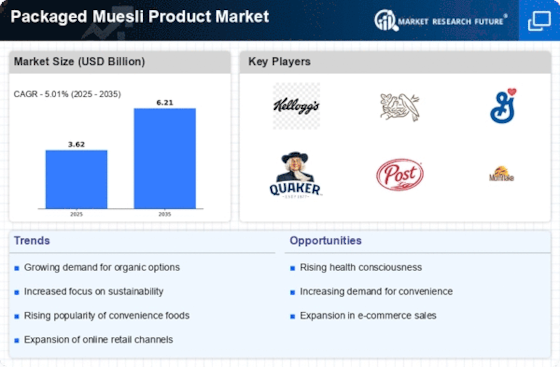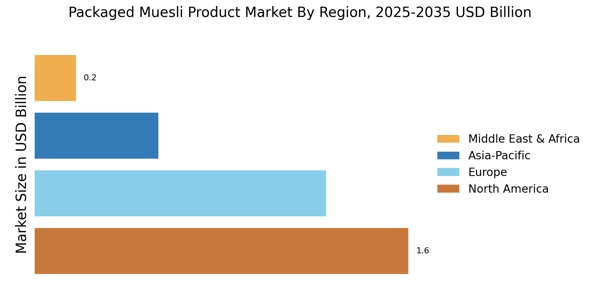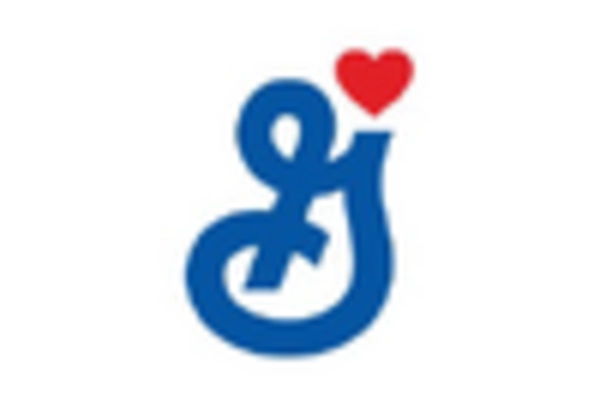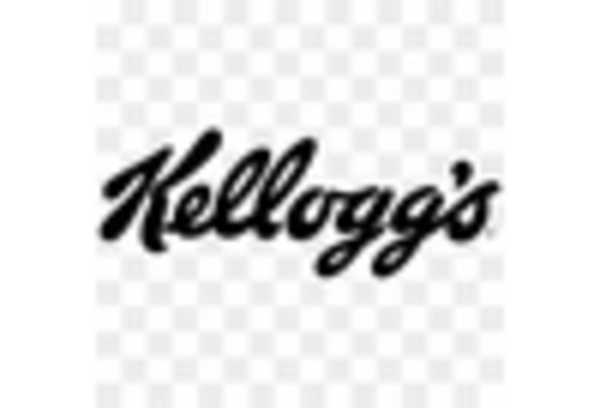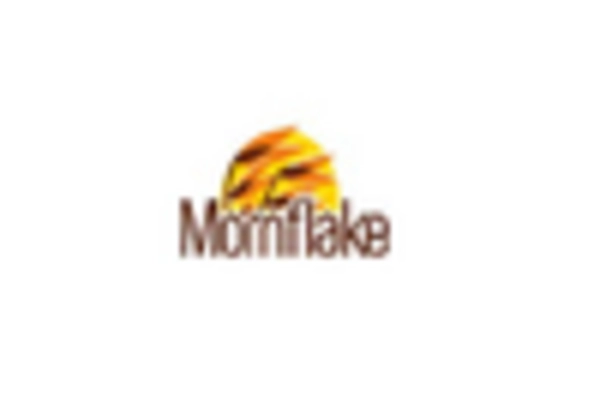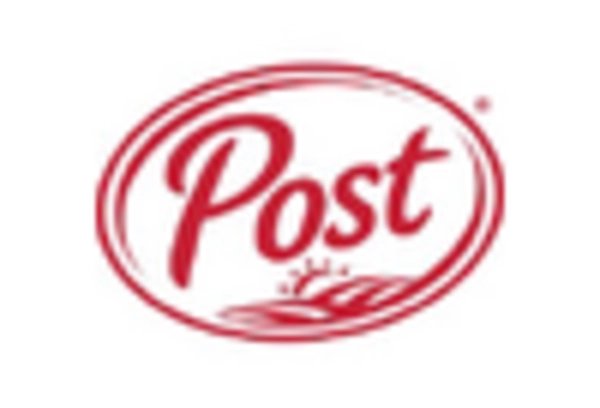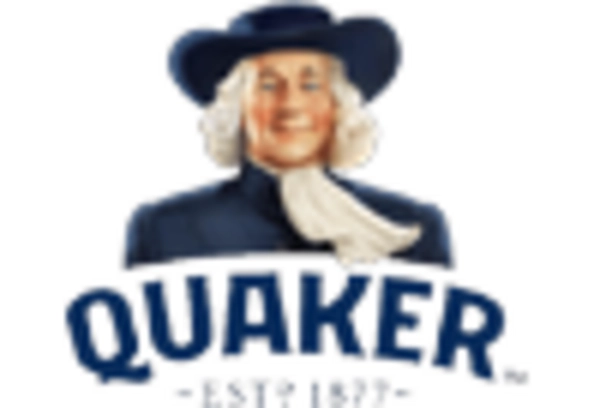Health Consciousness
The increasing awareness of health and nutrition among consumers appears to be a primary driver for the Packaged Muesli Product Market. As individuals seek healthier breakfast options, the demand for muesli, which is often perceived as a nutritious alternative to sugary cereals, has surged. Recent data indicates that the health food sector is projected to grow at a compound annual growth rate of approximately 8% over the next five years. This trend suggests that consumers are gravitating towards products that offer whole grains, nuts, and dried fruits, which are staples in muesli. Consequently, brands that emphasize health benefits, such as high fiber content and low sugar levels, are likely to capture a larger market share. The Packaged Muesli Product Market is thus positioned to benefit from this shift in consumer preferences.
Diverse Flavor Profiles
Flavor innovation plays a crucial role in attracting consumers to the Packaged Muesli Product Market. As taste preferences evolve, brands are increasingly experimenting with unique flavor combinations to differentiate their products. Recent market analysis suggests that muesli products featuring exotic ingredients, such as superfoods and spices, are gaining traction among health-conscious consumers. This diversification in flavor offerings not only caters to a broader audience but also enhances the overall consumer experience. The introduction of seasonal flavors and limited-edition products may further stimulate interest and drive sales. Consequently, companies that prioritize flavor innovation are likely to see a positive impact on their market presence within the Packaged Muesli Product Market.
Rise of Plant-Based Diets
The growing popularity of plant-based diets is significantly impacting the Packaged Muesli Product Market. As more consumers adopt vegetarian and vegan lifestyles, the demand for plant-based food options, including muesli, is on the rise. This shift is supported by research indicating that plant-based diets can contribute to improved health outcomes and environmental sustainability. The market for plant-based foods is projected to expand rapidly, with consumers increasingly seeking products that align with their dietary preferences. Muesli, often rich in whole grains, nuts, and seeds, fits well within this trend. Brands that effectively market their muesli products as plant-based and nutritious are likely to attract a growing segment of health-conscious consumers. The Packaged Muesli Product Market is thus poised for growth as it aligns with the rise of plant-based eating.
Sustainability and Ethical Sourcing
Sustainability has emerged as a pivotal concern for consumers, influencing their purchasing decisions in the Packaged Muesli Product Market. As awareness of environmental issues grows, consumers are increasingly favoring brands that prioritize ethical sourcing and sustainable practices. This trend is reflected in the rising demand for organic and non-GMO ingredients, which are often associated with muesli products. Data indicates that the organic food market is expected to witness substantial growth, with consumers willing to pay a premium for sustainably sourced products. Brands that transparently communicate their sustainability efforts and engage in eco-friendly packaging are likely to resonate with environmentally conscious consumers. Thus, the Packaged Muesli Product Market stands to benefit from this shift towards sustainability.
Convenience and On-the-Go Consumption
The fast-paced lifestyle of modern consumers has led to a growing demand for convenient food options, which significantly influences the Packaged Muesli Product Market. As more individuals seek quick yet nutritious meals, packaged muesli products offer an ideal solution. The market for ready-to-eat meals is expected to expand, with a notable increase in single-serve packaging options. This trend indicates that consumers are looking for products that can be easily consumed during commutes or at work. Furthermore, the rise of e-commerce platforms has facilitated the accessibility of packaged muesli, allowing consumers to purchase these products with ease. As convenience becomes a priority, brands that innovate in packaging and product formats are likely to thrive in the Packaged Muesli Product Market.


